The Boy Scouts In Russia - [32]
"I thought they had caught you!" he cried. "I saw them chasing someone, and it looked like you. In fact, I was sure it was you at first sight."
"It was," said Fred, grimly. "I'll tell you about that later, Boris! You'd better get everyone out of this place. We can't stay here any longer. Unless I'm greatly mistaken, this will be used as a target for artillery by morning. It will if Ivan is right."
"He rushed by me just now. He would say nothing except that you were behind."
"He's at the wireless. Come on! We'll see if he has found out anything more."
For ten minutes after they reached the turret, they could get nothing out of Ivan, who was sending hard, with only an occasional pause to listen to what the other operator sent to him. Then he sat back with a sigh of relief.
"We were in time!" he said. "These troops back here are the ones that were supposed to be massing behind Liok, to resist the feint we were making there. They are too clever, those Germans! They have their airships to tell them the truth, and their railways to move men swiftly from one side to another. But they have not enough men! We shall beat them yet. Our attack will stop. See-look here!"
He moved to a table, and with pens and pencils made a rough diagram of the position.
"They gave up Gumbinnen without a fight, and formed in a half circle behind. They had so few men there that it was an invitation to us to try to outflank them. Our right could sweep out and draw in behind their left-so. And then their supporting troops could outflank our right, in turn, and it would be caught between two fires! They have fewer troops than we in East Prussia to-day, but ours are separated, while they risked all to bring all theirs together at this one point and left the south unguarded from Mlawa to Liok! Oh, it was daring-Napoleon might have planned that!"
"I see," said Fred. "Then when they had won here, they could have used their railway to move troops southward?"
"Exactly so! A hundred and fifty thousand men all together can beat a hundred thousand, if all else is equal. But one army of a hundred thousand can beat two of seventy-five thousand apiece, meeting them at different times. So our attack will stop. We shall leave a covering force here at Gumbinnen-or perhaps all our troops here will stay, but on the defensive, while others are rushed up from Grodno to outflank them, not on their right, as they hoped, but on their extreme left!"
He was silent for a moment.
"I need one man here," he said. "One man, to keep the engine running for the dynamo. Everyone else must leave this house. You, Boris Petrovitch, most of all-you and your cousin. I am responsible to your father for your safety for it is through my fault that the plans were badly made."
"But why must you stay, Ivan?" asked Boris.
"I must stay until I am ordered away," said Ivan. "But it will not be safe here after daylight-perhaps there will be trouble even before that. Yes, I think it will be very soon now."
"Well, I think I shall stay," said Fred.
"No," said Ivan. "Listen! If you go now, quickly, you can get away in the car. Here is the road you must follow." He took a map and pointed. "See-swing west first, and then south-far south. So you will be safe from the Germans, for they have abandoned that section except for the railway from Insterberg to Liok. That is guarded, but thinly. In the car are two long coats such as the German officers wear, and two helmets. They are under the rear seat. Put those on, and you will pass most of their sentries, if you should encounter them."
"If he says we must go, we must do it," said Boris, quickly. "I should like to stay, too, Fred, but he is right. We can do no good here, and if you are caught it will be very bad. It would not matter with me, for they would only treat me as a prisoner."
Fred was still unwilling. He had not Boris's Russian readiness to accept whatever came, but there was something about Ivan that convinced him that argument would be useless.
"Go now," said Ivan, "and God go with you! I will see to it that Vladimir and the others follow."
And so Fred went through the tunnel again, this time with Boris. He wondered if he would ever see this place again. CHAPTER XV
A DASH THROUGH THE NIGHT
Both boys were startled when they reached the open air again to observe how the din of the battle to the east had increased. They paused for a moment to stare at one another.
"That is real war," said Boris. "Not like the skirmish here when the Cossacks came."
"The Germans are giving way on purpose, of course, if Ivan is right-and it seems to me he must be," said Fred. "I am afraid to think of what will happen to him."
"I do not like to think of it, either," said Boris, "but it is fate. He has his work to do, and it is all for Russia-for God and the Czar! I have always been taught that we can die only once, and that it is a holy thing to die for Russia."
"Yes, but it is better to live for Russia than to die for her, if it is possible," said Fred. "Come! We have no time to lose, I suppose."
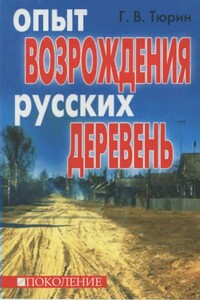
Плачевная ситуация в российских деревнях известна всем. После развала масштабной системы государственного планирования исчезли десятки и сотни тысяч хозяйств, произошел массовый отток населения из сельских районов, были разворованы последние ценности. Исправление ситуации невозможно без эффективного самоуправления в провинции.Организованный в 1997 году Институт общественных и гуманитарных инициатив (ИОГИ) поставил перед собой цель возрождения сельских районов Архангельской области и добился уникальных результатов.
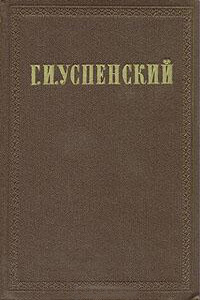
В настоящее издание включены все основные художественные и публицистические циклы произведений Г. И. Успенского, а также большинство отдельных очерков и рассказов писателя.
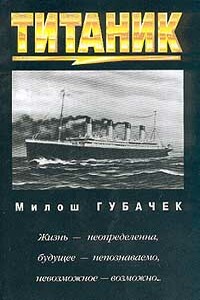
В ночь с 14 на 15 апреля 1912 года гигантское судно «Титаник» увлекло в ледяную бездну 1500 человек. Об этой одной из крупнейших в мире морских катастроф снято более десятка кинофильмов, написано около 50 книг, опубликовано шесть сборников стихов и две пьесы.Предлагаемая книга о «Титанике» является, по мнению критиков, лучшим и наиболее полным изданием на эту тему в мировой литературе. Ее автора отличает блестящее знание предмета и эпохи, а также тщательность и обстоятельность анализа событий, связанных с гибелью «непотопляемого плавучего дворца».
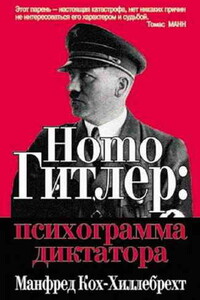
До сих пор историки многого не знают о Гитлере. Каковы были мотивы его мыслей и поступков? На чем основана легенда о его громадных знаниях и сверхчеловеческих способностях влиять на людей? Автор этой книги, немецкий профессор, в результате долгих и кропотливых исследований создал психограмму человека, возглавлявшего III рейх.
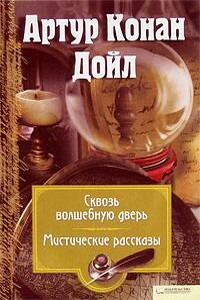
В настоящей книге Конан Дойл - автор несколько необычных для читателя сюжетов. В первой части он глубоко анализирует произведения наиболее талантливых, с его точки зрения, писателей, как бы открывая "волшебную дверь" и увлекая в их творческую лабораторию. Во второй части книги читатель попадает в мистический мир, представленный, тем не менее, так живо и реально, что создается ощущение, будто описанные удивительные события происходят наяву.

В книге рассказывается история главного героя, который сталкивается с различными проблемами и препятствиями на протяжении всего своего путешествия. По пути он встречает множество второстепенных персонажей, которые играют важные роли в истории. Благодаря опыту главного героя книга исследует такие темы, как любовь, потеря, надежда и стойкость. По мере того, как главный герой преодолевает свои трудности, он усваивает ценные уроки жизни и растет как личность.